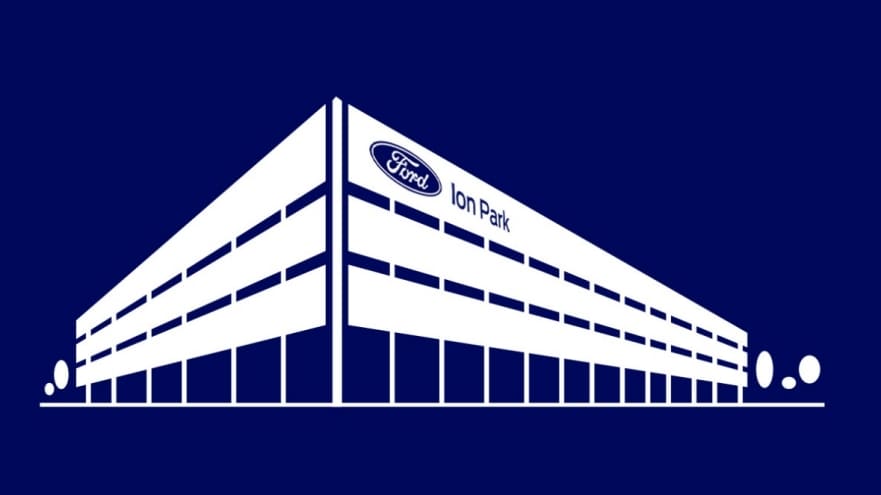Ford is getting even more serious with its electric vehicle ambitions. The American automaker has committed to establishing an EV battery cell production and R & D facility called Ford Ion Park.
The new facilities will be located in Romulus, Michigan, Ford’s home state. The choice of location was in line with its 2010 promise to make Michigan the center of excellence for its EV efforts. According to Anand Sankaran, “The new lab will help Ford speed up the battery development process to deliver even more capable, affordable batteries and is part of Ford’s renewed commitment to making Michigan a centerpiece of its focus on EVs.”
Ford’s Ion Park will be home to 200 engineers. They will work on solid-state and lithium-ion battery electrodes, cells, and array design. They will also develop new engineering manufacturing processes. The world-class facility will span 270,000 square feet, making use of an existing facility that will undergo refurbishments.

The total fund committed to the Ion Park project is $100 million, and it will come from the $185 million Ford had announced it would spend on battery cell development. Ford wants to identify the challenges presented by current battery production methods and find ways to improve the batteries’ performance, range, and useful life. The engineers will reimagine the whole battery-making process from mining raw materials to recycling old batteries.
Ford is spending much more than its budget for the new research facilities. It attempts to transition to a maker of pure electric vehicles. It has penciled down $30 billion for spending before 2025, making it one of the most earnest legacy automakers embracing electric vehicles.
With moves like this, Ford is securing a steady supply for its present and upcoming electric vehicles, an astute move given that a battery shortage is a possibility in the future as every carmaker rushes to become an electric vehicle manufacturer. Handwriting on the wall was the global chip shortage that affected even electronic product makers.
The company’s electrification efforts are starting to yield positive results as its Mustang Mach E has enjoyed a warm welcome, climbing high in many EV rankings in the US. Ford has also announced the F-150 Lightning, which will be available next year. It has plans for an electric van, too, the 2022 E-Transit.